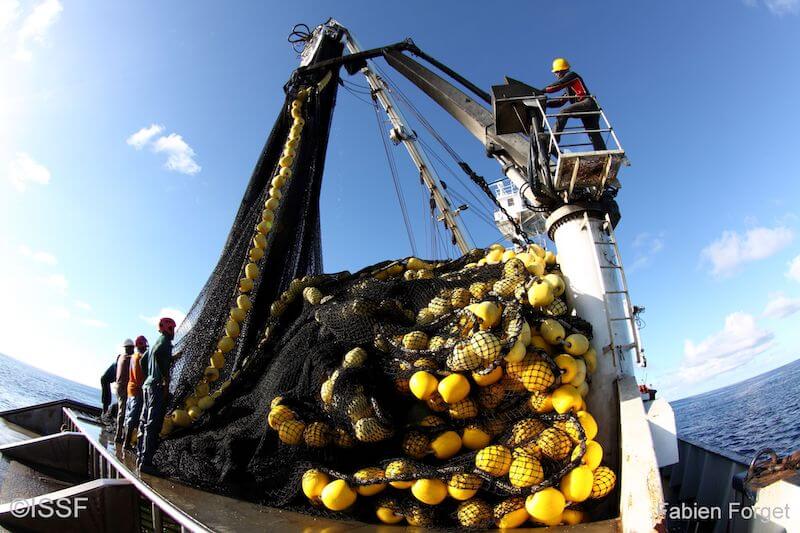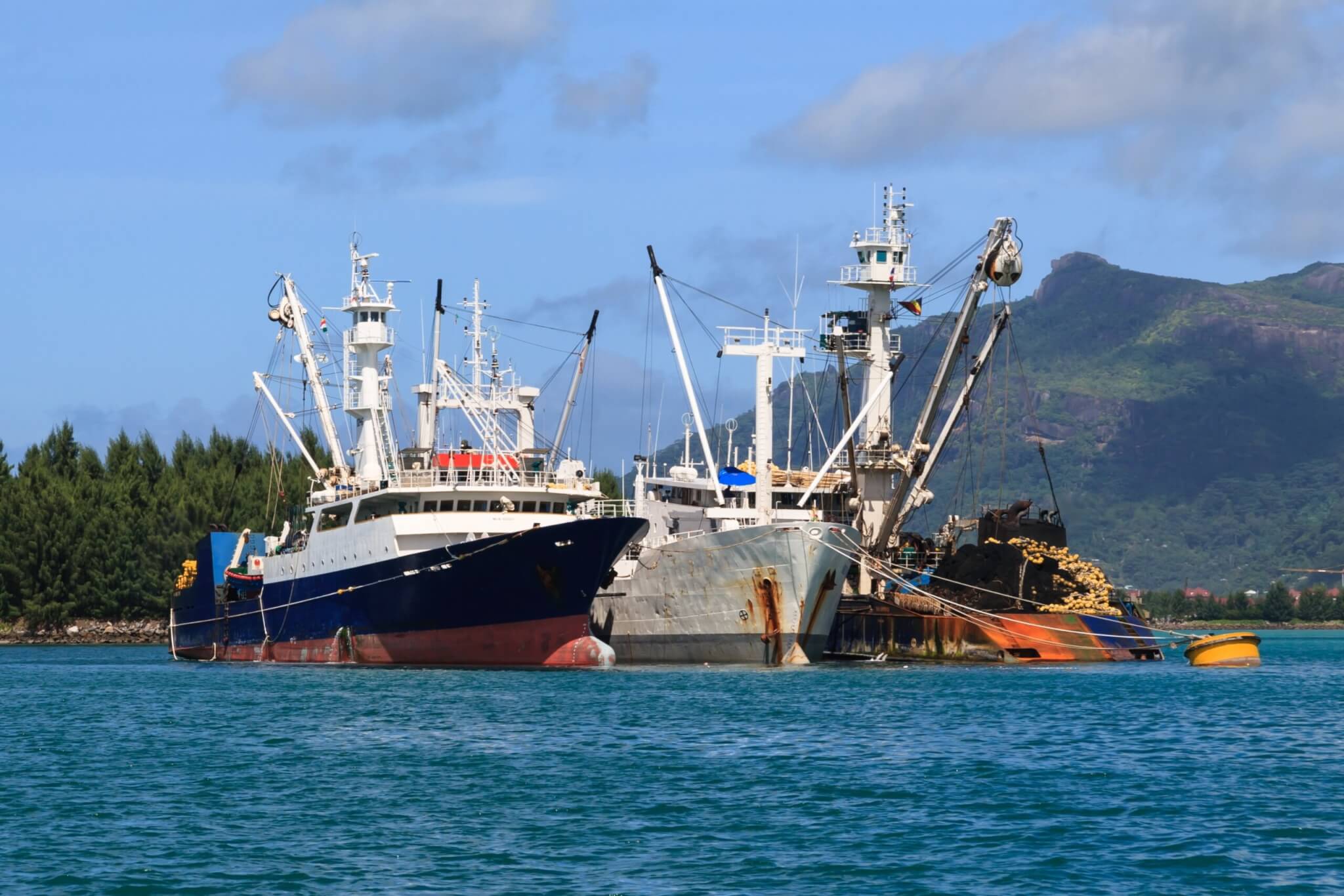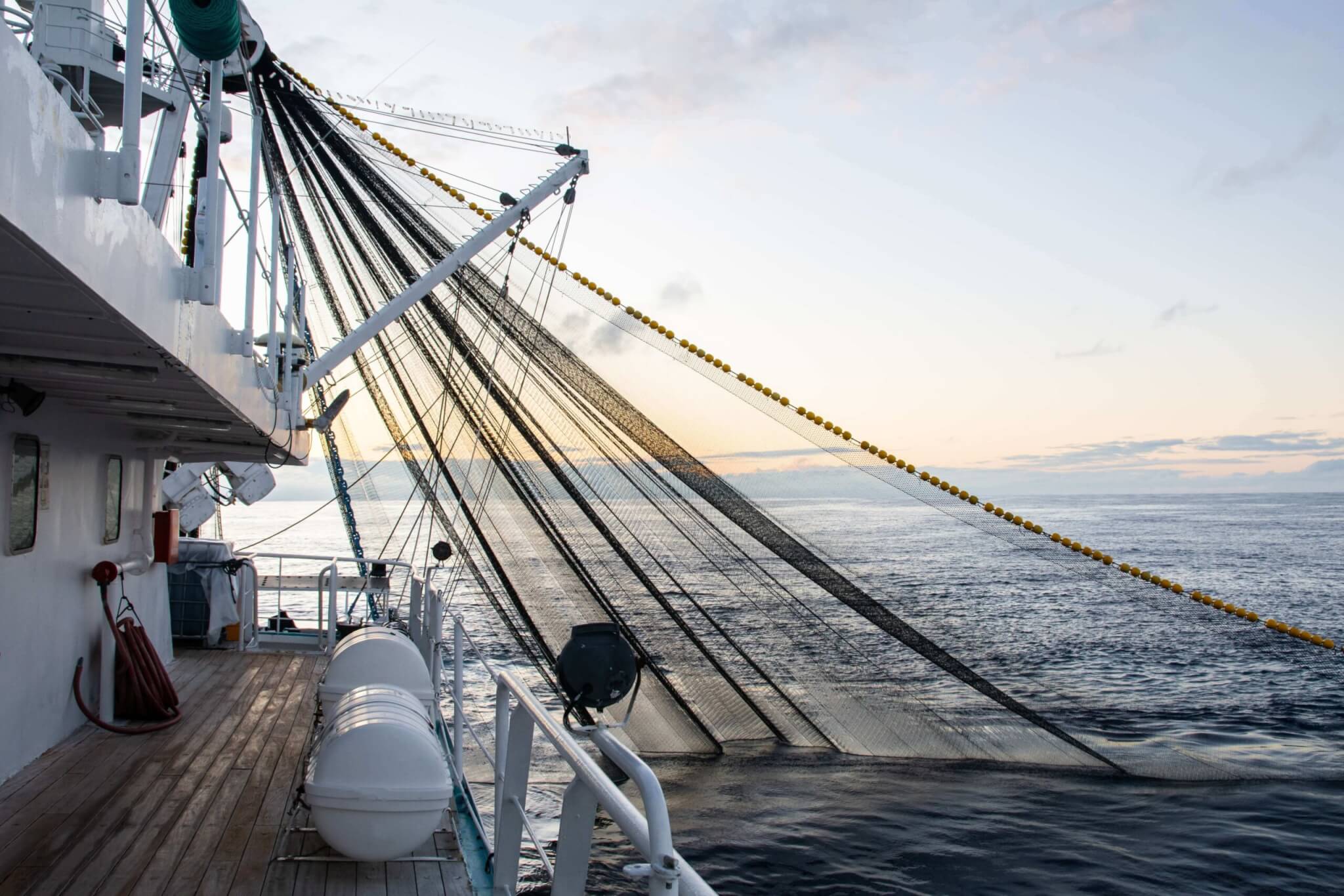
ISSF Publishes 2021 Annual Report Highlighting Accomplishments for Tuna Fisheries
The International Seafood Sustainability Foundation (ISSF) released its 2021 annual report today, titled Transparent Accountability Across Tuna Fisheries, which presents the organization’s commitment to the day-in-day-out work to achieve sustainable tuna fisheries, with a focus on verified transparency — a theme evident across all efforts, from ISSF’s work with industry partners to its advocacy appeals to Regional Fisheries Management Organizations (RFMOs).
“The theme we’ve chosen for this year’s report — fostering greater transparency and accountability — could apply to ISSF’s work in any year. But it seems especially relevant now, as we emerge from a pandemic that underscored our dependence on science and responsibilities to each other,” said ISSF President Susan Jackson. “Openness and responsiveness are embedded in our organizational DNA: ISSF exists because eight forward-thinking seafood companies in 2009 were willing to put themselves on the line to learn from fisheries scientists about how to become better stewards of the sea.”
ISSF has released its 2021 annual report, titled Transparent Accountability Across Tuna Fisheries, which includes features on electronic monitoring and the seafood supply chain. Share on XTransparent Accountability Across Tuna Fisheries reviews ISSF’s continued global collaborations, marine research projects, and advocacy efforts to identify and promote best practices in tuna and ocean conservation with fishers, tuna companies, and RFMOs. The report also covers ISSF’s activities with environmental nongovernmental organizations (NGOs), scientific agencies, and more.
Jackson continued, “This long-term perspective and commitment to continuous improvement remain fundamental to ISSF’s guiding objective: helping tuna fisheries meet the Marine Stewardship Council (MSC) standard without conditions. Transparency and accountability can take many forms, but both hinge on gathering, disseminating, analyzing, and activating data. We can’t make adjustments or fill gaps until we know where or why something is broken, what is missing, or whether previous actions or interventions have been effective.”
“Transparent Accountability Across Tuna Fisheries” Highlights
The report includes feature articles examining two of the most pressing topics related to more sustainable tuna fisheries today: electronic monitoring and supply chain transparency. Dr. Hilario Murua, ISSF Senior Scientist, authored “Electronic Monitoring in RFMOs — A Journey Towards Transparency.”
Dr. Tom Pickerell, Executive Director of the Global Tuna Alliance and Member of the ISSF Environmental Stakeholder Committee, contributed “Commitments and Credibility in the Tuna Supply Chain.”
Video content and downloadable graphics are available throughout the report, which also highlights these milestone ISSF accomplishments last year:
- Advancing jelly FAD research to design and test the next generation of biodegradable fishing gear
- Increasing outreach to fishery improvement projects (FIPs) and MSC certification assessments, and giving feedback for the first time on surveillance audits of current MSC-certified fisheries
- Doubling registrations since inception to 500+ on the ISSF public vessel list for seafood sourcing, Vessels in Other Sustainability Initiatives (VOSI)
- As a reference tool for policymakers and advocates, authoring a report benchmarking RFMOs’ port state measures to an international standard
- Adding or amending conservation measures, including for longline fisheries, which catch about 10% of the world’s tuna, and increasing protections for vulnerable sharks, sea turtles, and seabirds
Conservation Measures & Commitments Compliance Report
Also included in Transparent Accountability Across Tuna Fisheries are results of the ISSF Annual Conservation Measures & Commitments Compliance Report, which ISSF publishes in coordination with the annual report.
The ISSF Annual Conservation Measures & Commitments Compliance Report shows a conformance rate of 99.6 percent by 25 ISSF participating companies as of March 2022. It tracks companies’ progress in conforming with ISSF’s thirty-two conservation measures (CM) such as these:
- Demonstrating the ability to trace products from can code or sales invoice to vessel and trip
- Submitting quarterly purchase data by vessel, trip dates, species, size and other data to RFMO scientific bodies
- Transactions only with those longline vessels whose owners have a policy requiring the implementation of best practices for sharks and marine turtles
- Establishing and publishing policies to prohibit shark finning and avoiding transactions with vessels that carry out shark finning
- Conducting transactions only with purse seine vessels whose skippers have received science-based information from ISSF on best practices such as reducing bycatch
- Avoiding transactions with vessels that are on an RFMO Illegal, Unregulated and Unreported (IUU) Fishing list
Two measures were newly in effect for the 2021 audit period, and all 25 companies were in full conformance with them:
- CM 3.7 Transactions with Vessels or Companies with Vessel-Based FAD Management Policies
- CM 9.1 Public Policy on Social and Labor Standards
As part of its commitment to transparency and accountability, ISSF engages third-party auditor MRAG Americas to audit participating companies to assess their compliance with ISSF’s conservation measures. MRAG Americas conducts independent auditing based on a rigorous audit protocol.
In addition to a summary report, MRAG Americas issues individual company reports that detail each organization’s compliance with ISSF’s conservation measures. ISSF publishes these individual company compliance reports on its website.


